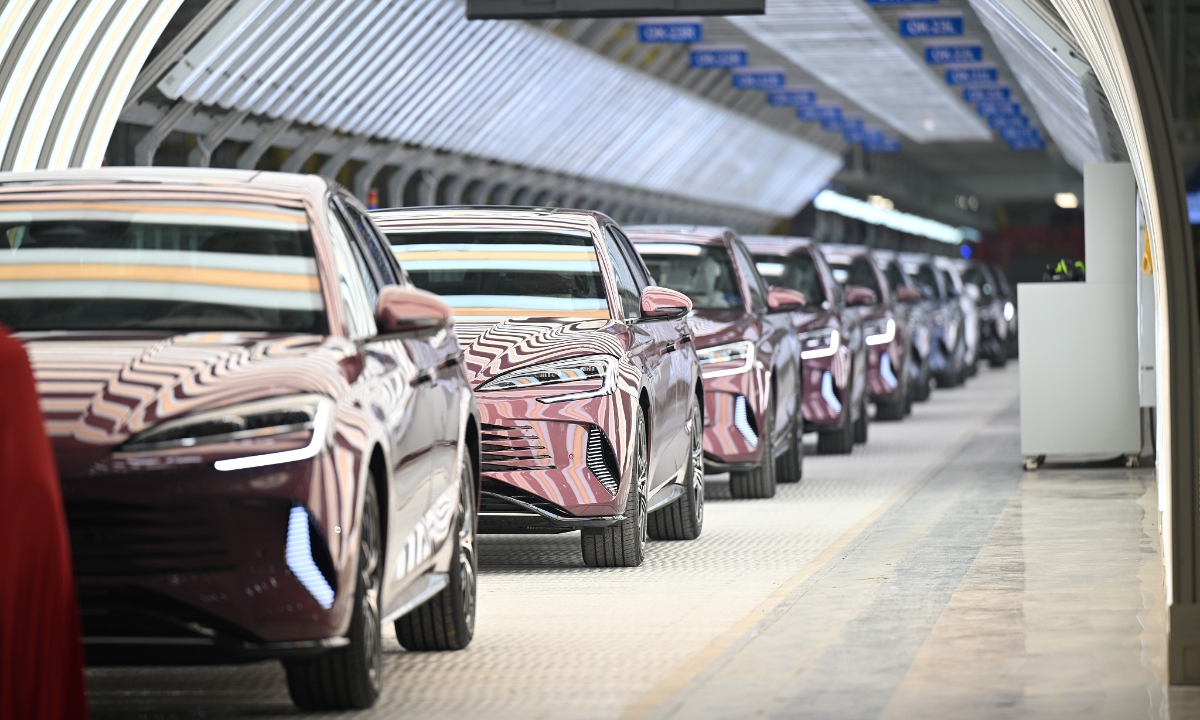
EV Photo:VCG
China expressed strong dissatisfaction and firm opposition to Turkey's decision to impose an additional 40 percent tariff on vehicles imported from China, China's Ministry of Commerce (MOFCOM) said on Friday, urging the country to immediately remove the additional tariff.
Turkey's move is against WTO rules, and its changeable policies not only harmed the interests of enterprises on both sides and local Turkish consumers, but also aggravated Chinese companies' concerns about Turkey's business environment and undermined their confidence in investing in Turkey, the MOFCOM said.
Turkey is only imposing additional tariffs on passenger cars originating in China, which means Chinese products receive less favorable treatment than similar products from other WTO members. This constitutes discrimination against Chinese products and seriously violates the principle of most-favored-nation treatment, the MOFCOM said.
The MOFCOM urged Turkey to immediately remove the discriminatory tariffs, and vowed to take "necessary measures" to safeguard the legitimate rights and interests of Chinese companies.
Also on Friday, Chinese Foreign Ministry spokesperson Lin Jian said that Turkey's move to impose an additional tariff on Chinese cars runs counter to WTO rules and the stable development momentum of China-Turkey bilateral relations. Bilateral trade cooperation has grown rapidly, and practical cooperation has brought tangible benefits to the people of the two countries, the spokesperson said.
Asked about a growing number of countries, including Mexico and Brazil, reportedly imposing tariffs on Chinese products, Lin said that China's bilateral relations with Latin American countries, including Brazil, Mexico, Chile and Colombia, have maintained a good development momentum, and economic and trade cooperation has been stable and fruitful.
Sound economic and trade cooperation is in line with the fundamental interests and common expectations of China and the above-mentioned countries, Lin said, while referring questions about tariffs to competent departments.
The remarks came after Turkey said on June 8 that it will impose a 40 percent additional tariff on imports of vehicles from China to halt a possible deterioration of its current account balance and protect domestic automakers, Reuters reported, citing the trade ministry.
The additional Turkish tariff will be set at a minimum of $7,000 per vehicle, and will take effect on July 7, a presidential decision published in the country's Official Gazette showed.
In a statement, Turkey's trade ministry also said the additional tariff decision was made taking into current account deficit targets and efforts to encourage domestic investment and production, according to Reuters.
Bloomberg reported that Turkey raised tariffs on Chinese electric vehicles (EVs) in 2023 to support the country's first domestically produced EV.
Experts said that Turkey's move against Chinese cars amounts to protectionism, which won't help its domestic industry and consumers.
Cui Dongshu, secretary-general of the China Passenger Car Association, told the Global Times that
the increase in import duty on Chinese vehicles is primarily due to Turkey's large trade deficit and the country's ongoing economic downturn, with the aim of boosting fiscal revenues.
Turkey is promoting the development of its own EV industry, as it sees the competitiveness of Chinese makers as a challenge, Cui said.
Global Times




